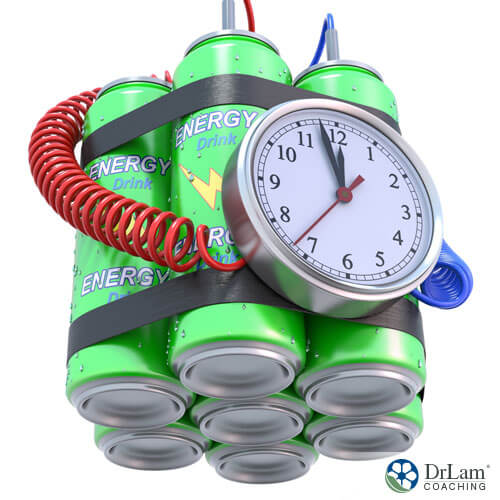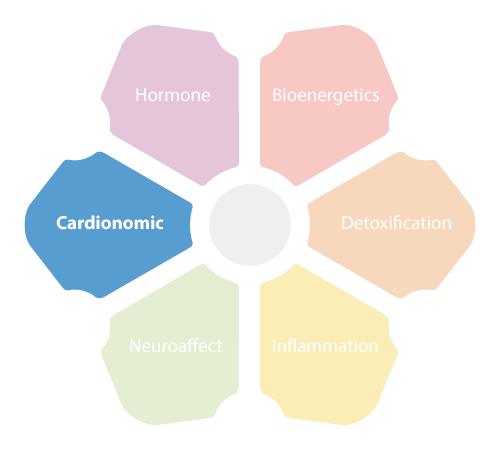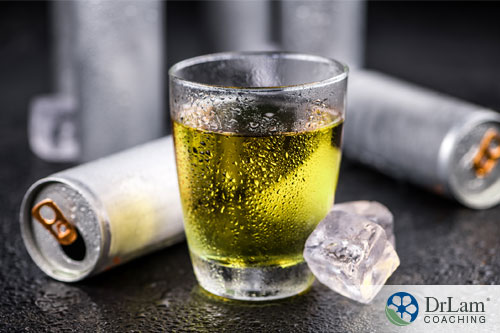 The chances of you walking into any food store in the United States and not seeing racks filled with heart threatening energy drinks is very slim. For many of us, these drinks are considered life-saving energy boosters or pick-me-ups during those times of the day when energy levels are down, and we need a little “something extra” to keep going.
The chances of you walking into any food store in the United States and not seeing racks filled with heart threatening energy drinks is very slim. For many of us, these drinks are considered life-saving energy boosters or pick-me-ups during those times of the day when energy levels are down, and we need a little “something extra” to keep going.
Numerous studies, however, show that heart threatening energy drinks affect more than your heart health. Researchers claim these drinks could have a negative impact on your sleeping habits, increase your blood pressure, promote kidney damage, cause weight gain, and encourage tooth decay. They may be a risk factor for diabetes and the development of mental health issues. There is also an indication that consuming heart threatening energy drinks may lead to instances of substance abuse.
The reason these heart threatening energy drinks may have such a negative effect on your long-term health may lie in their ingredients. The two we are going to look at specifically are sugar and caffeine.
The ingredients in heart threatening energy drinks are predominantly sugar, caffeine, and various stimulants. Amongst these stimulants, we may find guarana and certain amino acids such as taurine and L-carnitine. While these stimulants are often used as supplements, the problem when it comes to heart threatening energy drinks is that they are found in much higher concentrations than one would normally ingest. Another consideration is that, when combined with caffeine, their effects may be enhanced.
However, the sugar and caffeine alone found in these drinks can cause serious damage to your body.
Heart threatening energy drinks, on average, contain around 54 grams of sugar in each can. According to the American Heart Association, the daily recommended limit of sugar consumption for men is no more than 36 grams per day. The sugar content in one of these cans is way over this daily recommended limit. This high sugar content in heart threatening energy drinks can lead to the possible development of numerous health conditions. One of these is obesity, with the possibility of diabetes and insulin resistance following.
A study on young women and heart threatening energy drinks, for example, indicated that, when consuming these drinks, fat oxidation is suppressed. This, in effect, means that the body does not burn fat for energy. But why should it, when there is so much sugar available from energy drinks? It is much easier to metabolize this sugar than to burn fat for energy. And the body can’t use all the readily available sugar from heart threatening energy drinks for fuel. This surplus sugar means that your liver (which metabolizes sugar) turns it into fat.
To put it simply, your body does not use up its fat stores. Meanwhile, the higher quantities of sugar from heart threatening energy drinks supply you with the energy you need plus more to spare. The extra energy is then converted into fat. Ergo, you start putting on pounds. If this state of affairs carries on over a long period of time, obesity may result.
Studies on sugar consumption in 1970 showed that, per person, sugar consumption per year was about 121 pounds. That is 55 kg. By 1995, however, it reached 150 pounds per year, i.e. 68 kg. This is the weight of an average, healthy, medium-sized man.
Obesity statistics show that, while adult obesity is on the increase, childhood obesity is also increasing at an alarming rate. Compared to 1975, it is believed that obesity in children and teenagers is now ten times higher and steadily increasing.
While obesity may have numerous health complications, for the heart in particular, it may result in:
Metabolic syndrome is the collective term for when a number of these conditions are prevalent in a single person, such as having hypertension, a high cholesterol and blood lipid count, high blood sugar levels, and excess fat around the middle. You do not have metabolic syndrome if only one or two of these conditions are present.
These conditions all increase your risk of developing cardiovascular issues and increase your risk of stroke.
One of the major concerns regarding heart threatening energy drinks is their high caffeine concentrations. Caffeine may activate your Sympathetic Nervous System (SNS) and suppress the action of adenosine, a neuromodulator.
Your SNS is largely responsible for your body’s fight or flight response when you are confronted with anything perceived as danger. This fight or flight response starts in the brain, more particularly, the hypothalamus. From here, neurotransmitters are sent to the pituitary gland which, in turn, sends the same to the adrenal glands, resulting in an increase in cortisol production. These three organs are collectively referred to as the HPA axis, while this automatic response to threats is referred to as the NeuroEndoMetabolic (NEM) Stress Response. However, the NEM stress response is supposed to be activated with a real fight or flight response is required, not just when people take caffeinated drinks to get more energy.
 The NEM response will result in your body getting ready for immediate action. In other words:
The NEM response will result in your body getting ready for immediate action. In other words:
Besides stimulating your SNS, high caffeine intake may promote dehydration as it affects your kidneys and increases your need to urinate.
According to a 2016 study, minor dehydration has the potential of promoting heart conditions as well as hardening the arteries, even in young, healthy men.
While adenosine is not a neurotransmitter, it is a neuromodulator that plays a few essential roles in signaling certain pathways and functions in your body. For instance:
Compromised adenosine levels may thus result in an increase in blood pressure and other heart conditions.
The evidence strongly suggests that these drinks can compromise heart health, and instances of caffeine toxicity due to consuming heart threatening energy drinks have also been reported. These reports include those from both adults and children. Symptoms associated with caffeine toxicity include heart palpitations, tremors, and agitation. The reasons for this toxicity may be due to the higher caffeine levels found in these drinks, as well as the misguided perception amongst many people that heart threatening energy drinks are a form of soft drink and thus safe for quenching your thirst. This, however, is most definitely not the reason they were created.
Numerous instances have been reported where people, after consuming more than one of these energy drinks, have gone into cardiac arrest. When tests were done, exceedingly high levels of caffeine were found to be present in these individuals. After testing to ascertain the reason, nothing abnormal was found except abnormally high levels of caffeine and taurine.
Taurine, of itself, plays a beneficial role with regards to heart health. There may, however, be a connection with regards to the interaction of caffeine and other ingredients, such as taurine, found in heart threatening energy drinks.
One small study found a correlation between heart threatening energy drinks and changes in blood pressure and the heart’s electrical activity. The study showed a strong indication that these drinks have a larger negative impact on your heart function than consuming the same amount of caffeine from coffee, for example. Although this study only looked at the effect of these beverages on a group of 18 people, and further studies may be in the pipeline, the evidence, once more, showed that these energy drinks have a negative impact on health.
 Heart health is linked to adrenal health. When your fight or flight response sets in, your adrenals increase cortisol production, and your heart starts pumping blood faster. This allows more oxygen to the brain and muscles, allowing you to make rapid decisions while allowing for rapid physical reactions such as running away from a situation as quickly as possible or standing your ground and fighting.
Heart health is linked to adrenal health. When your fight or flight response sets in, your adrenals increase cortisol production, and your heart starts pumping blood faster. This allows more oxygen to the brain and muscles, allowing you to make rapid decisions while allowing for rapid physical reactions such as running away from a situation as quickly as possible or standing your ground and fighting.
All systems usually return to normal once the threat has passed.
Prolonged stress, on the other hand, means your adrenals are constantly operating at a higher level, producing more cortisol over a longer period. The result is a variety of symptoms that may seem totally unrelated in their diversity. But adrenal fatigue affects all body systems, and all of these systems may ultimately become compromised. This is why identifying the condition is such a difficult task.
And this is where heart threatening energy drinks come into play. Caffeine increases cortisol production – even when nothing else is causing you stress. In essence, it causes an artificial increase in the production of this hormone. Taking into consideration that high amounts of caffeine are found in these drinks, they could, potentially, cause much more long-term damage than a regular cup of coffee. And this is where the heart comes in.
Cortisol allows for quick energy production in the cardiac muscle. Your heart needs this added energy because it needs to pump harder because the increased cortisol production indicates danger – and your fight or flight response has been invoked. The more cortisol, the harder your heart beats.
Together with an increased heart rate, however, we find an increase in insulin, glucose levels, and low-density lipoprotein. Low-density lipoprotein is commonly referred to as bad cholesterol. Inflammatory activity may also be impacted.
The end result is an overtaxed, compromised heart. Blood vessels may be damaged, arteries may narrow, and ultimately, you may end up staring heart failure or stroke in the face. This usually occurs during the latter stages of adrenal fatigue, which is why it is especially important for those with adrenal fatigue to avoid these energy drinks.
If you find yourself relying on these energy drinks to deal with your stressful life, sooner or later they will likely lead you down the road to adrenal fatigue. This is why it is important for you to discuss your energy drink use and your stress levels with your primary care doctor so they can help you come off these energy drinks.
It is important that if you are relying on these energy drinks to maintain energy levels, you do not suddenly stop, or it could make things worse. Some people have experienced adrenal crashes in such cases.
 If your heart and adrenals have been compromised due to too many heart damaging energy drinks, your first course of action is to talk to your doctor and begin gradually reducing your consumption of energy drinks until it reaches zero. Making further dietary and lifestyle changes that support adrenal recovery would also be beneficial for your heart.
If your heart and adrenals have been compromised due to too many heart damaging energy drinks, your first course of action is to talk to your doctor and begin gradually reducing your consumption of energy drinks until it reaches zero. Making further dietary and lifestyle changes that support adrenal recovery would also be beneficial for your heart.
For those who indulge occasionally, please do remember to take note of any adverse symptoms. If you do notice side effects, begin gradually reducing your consumption of these beverages.
The problem is, many people consider these energy drinks to be soft drinks. This is not the case. They were specifically designed to give extra energy, especially to people with a very active lifestyle. But this does not mean that they cannot do any damage to healthy, active people. Far from it. They have the potential to affect anyone, from children, to adults, to the elderly. Do make a considered choice before going shopping for heart damaging energy drinks. There are so many other beverage options that are healthier.
© Copyright 2020 Michael Lam, M.D. All Rights Reserved.
Adrenal fatigue is a condition that develops over a long period of time. It is difficult to find one specific cause. Heart threatening energy drinks contain high levels of caffeine, however, which stimulates cortisol production. This extra cortisol could potentially increase your risk of adrenal fatigue or worsen the condition.
